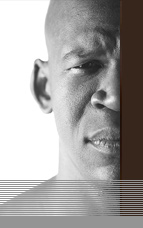Sleeping Pill Use - On the Rise
Even for Children Insomnia is an ever-increasing problem, it seems, worldwide. This use is no longer confined to older adults and senior citizens. The largest increase is in children and young adults with a growth of 855 to 100% since the year 2000.
The scary part is that, although the majority of these drugs have received short-tern testing, few have been tested for long-term use. The side effects and dangers of such usage remain unknown.
It's believed that about a third of the U.S. population suffer from sleep problems, and this total could be much higher. Many don't mention a sleep problem when visiting their doctors; so many such problems go unreported.
Sleeping aids, including Ambien, Sonata and Lunesta, have the highest rate of sale of all drugs on the market, and the Pharmaceutical Manufacturers keep churning out more.
This is a group that already had a high rate of medication usage. Again, this group of people may continue to use sleeping pills night after night, month after month and sometimes for years. Many of these drugs are addictive, but even if they aren't, there's a danger of psychological dependency. In this case, the patients feels that is' impossible to go to sleep without the pill. They feel they NEED them or they will never fall asleep.
The use of sleeping pills in the elderly can be a danger in itself. Such use must be carefully monitored to avoid errors in dosage. Also to be watched is drug interaction with other medications the patient uses, or the use of alcohol, which can be deadly when mixed with sleeping pills.
Sleeping pills can cause morning grogginess, disorientation that can lead to falls or other problems, memory loss and confusion.
The use of sleeping aids for children is really frightening. No sleeping drugs have FDA approval for this age group. Are our kids becoming so over-stressed that they need this help to fall asleep? Is another medication, including some of the medications used to treat ADD and ADHD causing the sleepiness? Perhaps parents are using sleeping pills as an aid to solving behavioral problems, problems that should be addressed and treated by other means.
Another group that has increased usage of sleeping aids is university students. Notorious for their erratic schedules, it's no wonder many develop insomnia or suffer from sleep deprivation.
Long thought to be a symptom of other disorders or illnesses, medical professionals are now beginning to recognize insomnia as a disorder in its own right. It's a disorder that can cause many problems, both physical and mental.
There's no doubt that we need to take a closer look at insomnia. We need answers, treatment, a cure. But are sleep disorders the answer? It's time to look at other methods of treatment -- counseling, biofeedback, better sleep hygiene. None of these offers a complete cure, but they might be a start.
It's time to cut back on the overuse of sleeping pills, especially for our children and our seniors.
References
Science News Online
Stanford University | 

